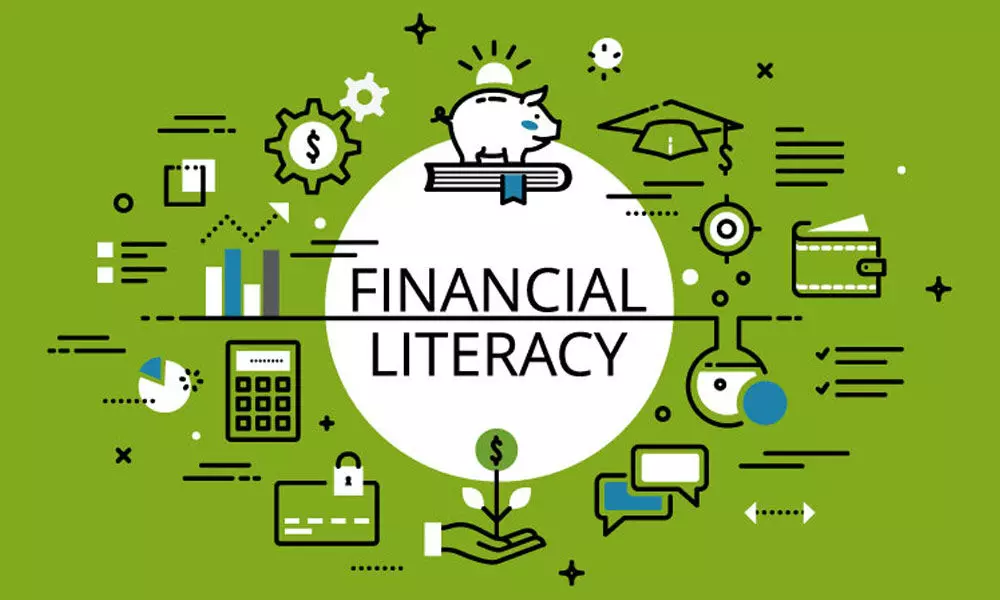The Importance of Financial Literacy: Empowering Your Financial Future
Introduction
Financial literacy is the ability to understand and effectively manage your financial resources. In today’s complex financial landscape, being financially literate is more important than ever. It empowers individuals to make informed decisions about saving, investing, budgeting, and planning for the future. This article will explore the concept of financial literacy, its significance, and practical steps to improve your financial knowledge.
1. What is Financial Literacy?
Financial literacy encompasses a range of skills and knowledge necessary for managing personal finances. It includes understanding concepts such as budgeting, saving, investing, credit, debt management, and financial planning. A financially literate person can make informed decisions that lead to financial stability and growth.
Key Components of Financial Literacy
- Budgeting: Creating a plan for managing income and expenses.
- Saving: Understanding the importance of saving for emergencies and future goals.
- Investing: Knowledge of various investment options and their risks and rewards.
- Debt Management: Strategies for managing and repaying debt effectively.
- Credit Scores: Understanding how credit works and the impact of credit scores on financial decisions.
2. Why Financial Literacy Matters
2.1. Better Decision-Making
Financial literacy enables individuals to make informed choices about their money. Understanding the implications of financial decisions can help avoid costly mistakes, such as accumulating debt or making poor investment choices.
2.2. Increased Savings and Investments
A strong grasp of financial principles encourages people to save and invest more effectively. Financially literate individuals are more likely to set aside funds for emergencies, retirement, and other long-term goals.
2.3. Reduced Financial Stress
Knowledge of personal finance can reduce anxiety related to money management. Financial literacy equips individuals with the tools to handle financial challenges, leading to improved overall well-being.
2.4. Improved Financial Security
Financial literacy contributes to building a secure financial future. Individuals who understand how to manage their finances are better prepared for unexpected expenses, job loss, or other financial emergencies.
3. The Impact of Financial Literacy on Society
3.1. Economic Growth
A financially literate population can drive economic growth. When individuals make informed financial decisions, they contribute to increased savings, investment, and consumption, which can benefit the overall economy.
3.2. Reduced Inequality
Financial literacy can help bridge the gap between different socioeconomic groups. Providing financial education to underserved communities can empower individuals to improve their financial situations, fostering economic mobility.
3.3. Better Community Outcomes
Communities with higher financial literacy rates tend to experience lower rates of poverty, homelessness, and financial crime. Financially literate citizens contribute positively to their communities by making sound financial choices.
4. How to Improve Your Financial Literacy
4.1. Educate Yourself
Take the initiative to learn about personal finance. There are numerous resources available, including books, online courses, and workshops. Look for materials that cover budgeting, investing, and debt management.
4.2. Use Financial Tools
Utilize budgeting apps, investment platforms, and financial calculators to help manage your finances. These tools can provide insights into your spending habits and investment opportunities.
4.3. Attend Financial Workshops
Many community organizations and educational institutions offer financial literacy workshops. Participating in these sessions can provide valuable information and resources.
4.4. Seek Professional Advice
Consider consulting with a financial advisor to discuss your financial goals and get personalized advice. A professional can help you develop a plan tailored to your specific needs.
4.5. Practice What You Learn
Apply your financial knowledge in real-life situations. Create a budget, track your expenses, and start investing, even if it’s a small amount. Practical experience reinforces learning and builds confidence.
5. Overcoming Barriers to Financial Literacy
5.1. Access to Resources
Some individuals may lack access to quality financial education. Community programs, libraries, and online resources can help bridge this gap.
5.2. Cultural Attitudes Toward Money
Cultural beliefs about money can influence financial behavior. Open discussions about finances within families and communities can help normalize financial literacy.
5.3. Complexity of Financial Products
The financial industry can be overwhelming due to the variety of products and services available. Simplifying information and providing clear explanations can make financial literacy more accessible.
Conclusion
Financial literacy is essential for making informed financial decisions and achieving long-term financial success. By understanding key concepts, improving your financial knowledge, and applying what you learn, you can empower yourself to take control of your financial future. As you become more financially literate, you’ll not only enhance your own life but also contribute to the financial well-being of your community and society as a whole.
